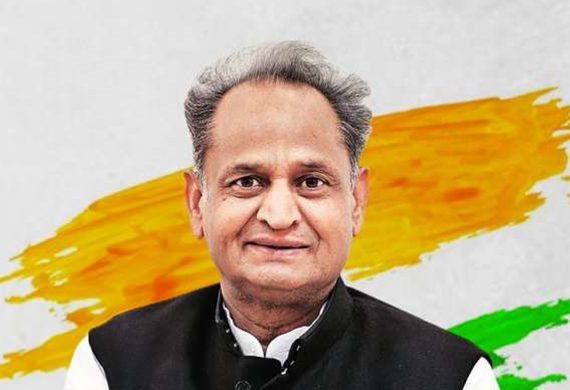
Gehlot Govt. to Distribute 1.33 Crore Free Mobile phones with 3 years Unlimited Data to Poor Women in Rajasthan
By: WE Staff | Friday, 20 May 2022
The Rajasthan administration, led by Ashok Gehlot, would provide free mobile phones to 1.33 million underprivileged women in the state.
The state government has issued a tender for the procurement of these mobile handsets, which will cost the state exchequer INR 7500 crore. In addition to the free device, the government will provide the recipients with a three-year subscription to the 4G network.
Each smartphone would cost INR 5639.
The purchase procedure would be completed in a few months, and the mobile handsets would be distributed on the fourth anniversary of the Gehlot government in December of this year.
As part of the state government's attempts to empower impoverished women, Rajasthan is the first state in the country to distribute free data-enabled mobile handsets.
All of the country's main mobile phone manufacturers are competing for the order for such a significant number of phones.
"It’s the tallest order floated by any government in the world and this would give a boom to the mobile industry of the country. It would go a long way in empowering the women and the women would be using the communication tool for their growth," stated a Rajcom official, the Rajasthan government's nodal agency in charge of the project.
Rajcom has scheduled a pre-bid meeting for May 23 at which all of the major mobile handset makers will participate. The successful bidder must deliver the gadgets within one year after winning the competition.
The bid process will be divided into sections, with the technical bid opening on July 1 and the qualifying companies being short-listed after that.
Chief Minister Ashok Gehlot, who also holds the finance responsibility, announced in the budget that women from low-income families will receive smartphones.
The phones would be provided to the female head of the family whose name is on the state government's Janadhar list. Janadhar cardholders will be given cellphones. The smartphone SIMs will be supplied with free data for three years after the beneficiaries' credentials were verified.
The distribution of mobile phones would take place at the district and block levels. All recipients will be required to earn KYEC, for which the state government's IT department will run special camps.
The winning bidder will be compensated for the purchase of the cellphones over a two-year period. It will only be paid 30% of the cost price at the time of delivery. The state government would pay only 35% of the cost of the smartphone after a year, and the remainder after two years.
One of the conditions that the successful bidder must meet is the establishment of a service centre to provide users with after-sales support.
In the first phase, the bidding company must furnish 5 lakh smartphones.
The Rajasthan government has also launched a 'Back to Work' programme for women who have had to leave their employment due to family obligations.
Chief Minister Ashok Gehlot has authorised a scheme that will provide such women with regular or work-from-home job opportunities with the assistance of the private sector.
A target of 15,000 employment in three years has been set. Widows, divorcees, and victims of violence will be given first priority.
Women who are unable to work in traditional office settings will be given the opportunity to work from home.
The women empowerment directorate will create a single-window mechanism to assist them with job placement.
Women will also be given skills and training to help them find work.
Gehlot also authorised a INR 8,461.76 crore financial allocation for 27 water supply projects under the Jal Jeevan Mission plan, so that women in water-scarce areas do not have to go several kilometres to obtain water.
The goal is to give drinking water to 7.73 lakh households in the state through taps.
Rajasthan offers a variety of educational programmes for girls, including free schooling. The state administration has now approved proposals to build 23 more remote women's colleges.


.jpg)



